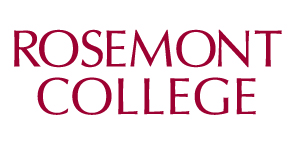Infectious Disease Policy (including COVID-19)
COVID-19 Vaccination Policy Updated Fall 2023
Since the onset of the COVID-19 pandemic, Rosemont has followed the guidance of local and national health agencies. The vaccine and follow up boosters for COVID-19 continue to be strongly recommended for all community members; however, the COVID-19 vaccine will no longer be a requirement for attendance at the College due to the high level of community immune protection, either via vaccine or prior illness. We strongly recommend that all members of the Rosemont community follow the advice of the CDC and take advantage of the most current guidelines and recommendations. The College supports mask-wearing, whether you are unvaccinated, protecting someone you love, or simply because you feel more comfortable.
What to do if a student tests positive?
Per the CDC, if you have tested positive or are showing symptoms of COVID-19, isolate immediately. Undergraduate students must provide medical documentation from a health care provider or photo of a positive test if they self-tested. Students who test positive can get tested and treated at a number of local urgent care centers.
Isolation procedures:
Residential students who have tested positive will need to be isolated. Students whose
primary address is within 200 miles of Rosemont are encouraged to return home to complete
their isolation if possible. Students living outside this 200-mile radius, or unable
to isolate at home, will be permitted to isolate at Rosemont. Residence Life has empty rooms that we use as safe rooms, so students with a roommate can isolate themselves
in those rooms. We also make arrangements with Dining Services to provide meals while
in isolation. Students must wear a well-fitting mask (like a medical mask or a KN95) mask when outside the room.
If you are isolating in place:
- You should avoid close contact with anyone outside of your room.
- If you are out of your assigned room, you are required to wear a well-fitting mask (like a medical mask or a KN95 mask) except when you are showering, bathing, brushing teeth, shaving and sleeping.
- You should not attend class — reach out to your professors to make plans for navigating your academic work while you are in isolation.
- You should not go to work.
- You should not attend social activities or athletic events.
- Please work to communicate with each other to respect each other's needs.
What to do if an employee tests positive?
If an employee tests positive for COVID-19, you must stay home for at least five days. Please make arrangements with your supervisor about taking sick days or working from home, as appropriate. Faculty should make arrangements with their Academic Dean about the delivery of course material to students. Employees may return to work on day 6 if they have no symptoms and wear a well-fitting mask.
Please remember guidance from the CDC:
When you have COVID-19, isolation is counted in days, as follows:
If you had no symptoms
- Day 0 is the day you were tested (not the day you received your positive test result)
- Day 1 is the first full day following the day you were tested
- If you develop symptoms within 10 days of when you were tested, the clock restarts at day 0 on the day of symptom onset
If you had symptoms
- Day 0 of isolation is the day of symptom onset, regardless of when you tested positive
- Day 1 is the first full day after the day your symptoms started.
What to do if I am exposed to COVID-19?
Wear a mask as soon as you find out you were exposed.
Start counting from Day 1
- Day 0 is the day of your last exposure to someone with COVID-19
- Day 1 is the first full day after your last exposure
You can still develop COVID-19 up to 10 days after you have been exposed. Take precautions by wearing a high-quality mask or respirator (e.g., N95) any time you are around others inside your home or indoors in public 1
Get tested on Day 6
Get tested at least 5 full days after your last exposure
Test even if you don’t develop symptoms
IF YOU TEST Negative:
Continue taking precautions through day 10
Wear a high-quality mask when around others at home and indoors in public
IF YOU TEST Positive, isolate immediately and follow the isolation instructions above.
Rosemont's Infectious Disease Vaccination and Testing Requirements
Required
All new students are required to show evidence of having been immunized against the following infectious diseases:
- Tetanus & Diphtheria
- Measles/Mumps/Rubella (MMR #1)
- Polio
- Hepatitis B
- Varicella
- Meningococcal Meningitis (required unless waiver approved)
Optional but Highly Encouraged
- COVID-19
Optional
- HPV Vaccine
May Be Requested for At-Risk Students
- Tuberculosis test
